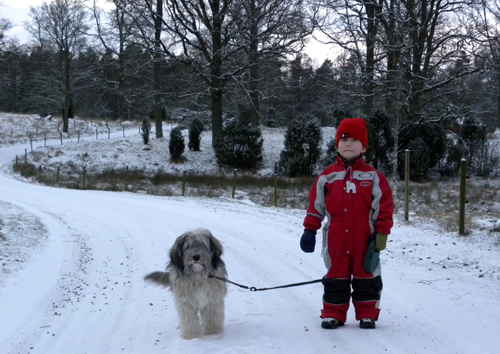| |
Evaluating PON Puppies

| |
As a result of being in the breed for several years and having
international contacts, I have been fortunate in learning a lot
about PONS. A number of international breeders have confided
that a "puppy test" is often misleading because they are
normally conducted only one time and one observation of certain
characteristics does not necessarily prove a true test of
individual puppies.
For example, let us assume a litter of 6 at 6 weeks of age is
being evaluated. Puppies are alert and playing, and the tester
picks one and removes it from the others to the secluded testing
spot, hopefully some place where the puppy has never been taken
previously. The tester runs it through the tests, takes 15 or
20 minutes, returns puppy to his littermates and picks another
one. By the time the, 4th, 5th or 6th puppy is chosen, they
may well be tired or even irritated. The later ones may not be
equally evaluated if they nap time is approaching and many may
not react to a stimulus they would have reacted to, if they were
chosen earlier on in the testing.
Consequently, the most accurate evaluation of a litter will be
obtained by a caring breeder who cares for the puppies every
day. She can document, who is the first at the door, who jumps
on the others the most, who is the first to the food and who is
the last, who is the first to come running when they are called,
who makes eye contact and who doesn't, who submits easily to
human touch, who handles a strange environment without being
nervous, etc.
It is far more accurate to base puppy evaluations on the above
observations over several weeks, than one test. Basically, if I
were considering a puppy for agility, I would pay attention to
the parents and inquire if they were ever active in agility
training. There are many variables in puppy testing and many
are difficult to control. Litter dynamics play a significant
role in puppy evaluation. If prospective PON puppy buyers are
considering a breeder in a far away state, why not ask for a
video and determine temperament from observations while watching
the litter in action.Some
common faults to avoid when choosing a PON puppy:
* Very narrow
jaw and small head size. The correct ratio between the mouth and
skull is1:1.
* Cow hocks
-may possibly indicate future hip issues
* Bad bite -
may be confirmed by a vet
* Legs which
are too long or short (an experienced breeder can evaluate this)
Correct proportions should be height 9 and length 10
* The puppy
should be rectangular rather than square in appearance
* Character -
avoid shy or nervous puppies |
| |
The 7 Stages of Puppy Development
In order to
understand why your puppy doesn’t listen to you at
times, you need to understand each stage of development
a puppy goes through as it matures. Let’s take a look at
the different stages, but before we do, keep in mind
that these stages are generalizations – each dog will
progress at its own pace. Please click on the above
link for the entire article.
|
|
| |
"Dogs need to sniff the ground; it's how they keep
abreast of current events. The ground is a giant dog newspaper,
containing all kinds of late-breaking dog news items, which, if
they are especially urgent,are often continued in the next
yard." -Dave Barry |
|
|
|

